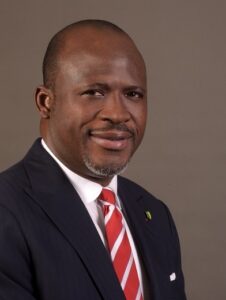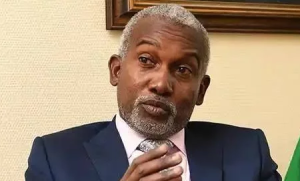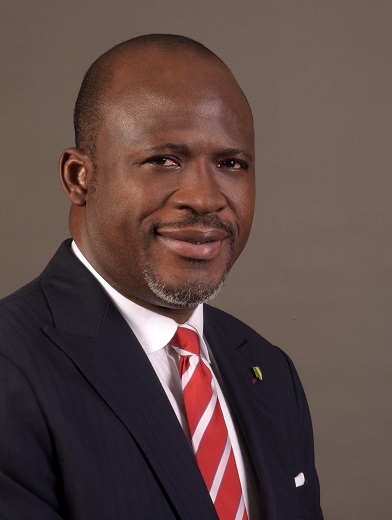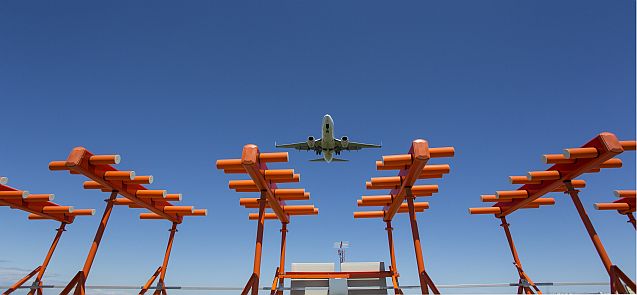
Aviation industry experts have identified factors that inhibit the plan of the African Union, supported by the International Air Transport Association (IATA) to have open sky for Africa, known as the Single African Air Transport Market (SAATM) and why it may not work as conceived or promote trade as expected.
SAATM is expected to promote easy entrance and exit of African airlines to any AU member state. It is a flagship project of the African Union Agenda 2063, which is an initiative of the African Union to create a single unified air transport market in Africa to advance the liberalization of civil aviation in Africa and act as an impetus to the continent’s economic integration agenda.
The objective is that with easy entry and exit of African airlines, trade among African nations will be promoted, as it is expected that the region’s economy will improve significantly if Africans trade among themselves. This will encourage food production and manufacturing on the continent because the region has arable land to cultivate its food and huge population to consume its produce and products.
It is also expected that if African nations trade among themselves, over time they will evolve a system where their currencies will not be validated by Euro, CFA or dollar and with SAATM, African airlines will move passengers and goods to create markets in Africa with limited reliance on imported goods from outside Africa. So, SAATM is a practical actualisation of the Yamoussoukro Decision, which was a treaty adopted by most members of AU aimed at liberalising air transport service between African countries.
The Managing Director, OmniBlu Aviation Services, Akin Olateru, told THISDAY that SAATM is good and would advance connectivity and trade in Africa, but there are certain parameters that must be put in place to make it work.
The former Director General of Nigerian Safety Investigation Bureau (NSIB) said that a lot of things ought to happen before the airspace is liberalised, which may include the adoption of common passport, common currency and one umbrella regulatory body that Civil Aviation Authority of member nations must yield to its regulatory control.
“SAATM is good but you cannot pick and choose. You cannot say that you want to liberalise aircraft movement but you are not liberalising passenger movement and we are not liberalising the currency. Let’s take a cue from the European Union (EU). They have one single currency. They have one passport. They have centralised regulation. In terms of aircraft and civil aviation in general, there is a minimum standard every country must abide by. That is the essence of EASA (European Union Aviation Safety Agency). They came up with EASA and every country in the union signed to that programme.
“So, it is a centralised safety system. But in Africa, you just say, SAATM, SAATM; let the aircraft just enter any country anyhow. No. Okay, aircraft will enter but people are restricted by visas. That doesn’t make sense. So, you will be flying empty aircraft into countries. And if you are not careful, this will just favour some countries and some countries will be left out. Everything must go together, if Africa wants to implement SAATM 100 per cent.
“There must be a unified CAA (Civil Aviation Authority) regulatory body; just like EASA. The CAA of every country in Africa will agree on uniform standard of operation. If you register an aircraft in The Gambia, it will be of the same standard if you register it in Nigeria. So, these are the things they need to implement or push forward; if not, in my opinion, it is not going to work. Even in cargo, there should be free trade. There shouldn’t be borders. People should be able to move without border control. It is a really long way to say that SAATM will be successful,”
In his contribution, the Managing Director of Flights and Logistics Solutions Limited, Amos Akpan, told THISDAY that SAATM is currently encountering challenges due to the lack of liberalization and backdoor protectionism by African countries.

“The Immigration systems are not simple and open. Simplifying visa requirements and travel procedures can facilitate the free movement of people, promote tourism and business travel.
There are too many documents and complex procedures involved in transactions amongst African countries. A unified currency can reduce transaction costs and complexities, making trade and travel easier. The charges are very high in some countries and regional blocs. Common uniform charges would encourage operators. For instance, standardizing fees and charges can create a more favourable business environment for the airlines and tour operators.
“African countries are yet to open their airspace to each other. They should grant fifth freedom rights, which allow airlines to operate between two foreign countries with a stop in their own country, which would increase route options and lower fares. There is need to increase air connectivity. Liberalizing air transport can enhance connectivity, facilitate trade, tourism, and economic growth. Few countries like Nigeria are opening up while most are still closed. For example, a Nigerian carrier cannot carry passengers and cargo from Addis Ababa and fly them direct to Brazzaville as destination. The Nigerian carrier will first fly to Nigeria and then depart again to Brazzaville with the passengers and cargo. On the contrary Ethiopian Airlines currently picks cargo from Lagos and fly direct to Monrovia or Sierra Leone as destination. Nigeria even permits other countries’ airlines to operate from more than two entry points within the country,” Akpan said.
He also noted that Nigerian airlines have had to shut down or reduce frequencies to other African countries because intending passengers hardly get visas which reduces their payload on the routes; which means they will operate at loss, adding that if SAATM is aggressively implemented, it will lead to greater competition which can lead to lower fares, making air travel more accessible.
“Regional blocs, like ECOWAS and SADC (South Africa Development Commission), should enhance regulatory frameworks by strengthening regulatory bodies and harmonizing regulations to ensure safety, security, and fair competition. They should implement policies that promote air transport liberalization and cooperation,” Akpan added.
Industry analyst and Regional Director, Moov Airways, Lanre Bamgbose, told THISDAY that with the increasing desire and policies driven across the African continent with trade liberalization, one expects that the single African air transport market would have progressed beyond what it is today, but “both are not as simple as it appears on paper when it gets to implementation.”
“Perhaps as a people and a region, the PTSD (Post-Traumatic Stress Disorder) from our colonization experience may have now led us to existential imbecility; otherwise, the seeming no traction of the Single African Air Transport Market to me is due to a lack of boldness or willingness to challenge the status quo among African countries as inherited from the colonial divisionism seen across the continent,” he observed.
Bamgbose asserted that African countries have not shown real drive and commitment to push for meaningful change or reform in the air transport sector, recalling that the Yamoussoukro Treaty has not been implemented so far.
“From experience as an operator, we are daily confronted with imbedded fear of competition, protection of national interests. limited capacity or resources, regulatory hurdles, lack of political will and perhaps the dwindling economic fortunes marked by territorial protectionism. Take, for instance, West Africa, far from being a homogeneous market; you will soon see the push back from the West on the fast-growing East African airlines as they move into the sub-region,” he said.

To accelerate the implementation of SAATM as a strategic continental mission, Bamgbose suggested that African countries can harmonize regulatory frameworks, implement liberalized air transport policies, gradually remove restrictions on air traffic rights, capacity, and frequencies to promote competition and growth.
Above views indicate that African nations will have to show greater commitment, jettison protectionism and push for uniformity in critical requirements for standard air transport policies before the pursuit of single air transport market to promote trade in the region.






